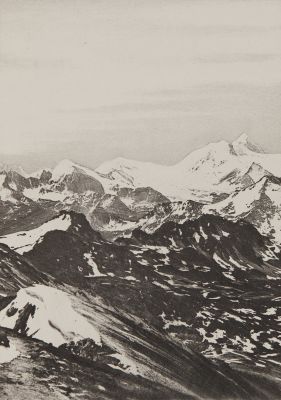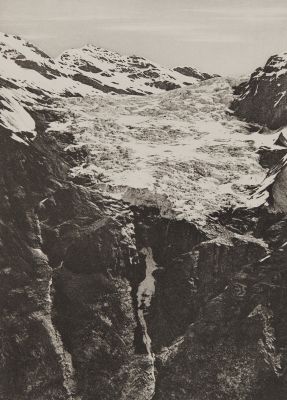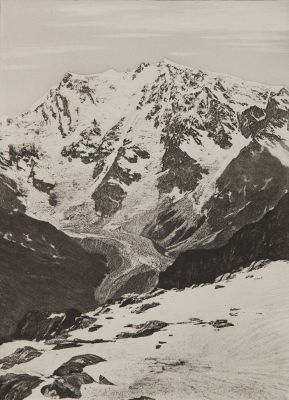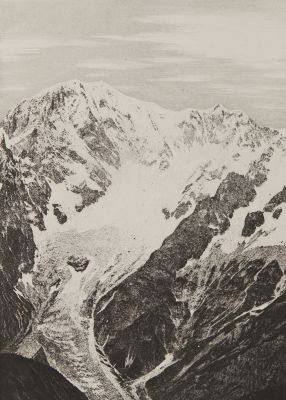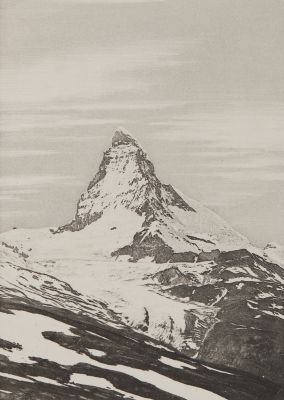
Title
Le Bernina _ 4052mArtist
Civiale, Aimé (Italian, 1821-1893)Publication
Les Alpes au point de vue de la géographie physique et de la géologieDate
1882 plate (1859-1868 negative)Process
PhotogravureAtelier
Ch. ChardonImage Size
14.2 x 10 cmSheet Size
24 x 15 cm
Illustrated with photogravures of alpine landscapes taken with dry-paper negatives by Civiale.
Pierre Joseph, known as Aimé Civiale, was a polytechnic and engineering officer before deciding to devote himself to "putting photography at the service of physical geography and geology ". From 1857 to 1858, Civiale photographed the Pyrenees and from 1859, for ten years, the Alps. The photographic trips lead him to travel through the Dauphiné and Savoy, the Swiss Alps, the North of Italy and the Tyrol to the country of Salzburg and Carinthia. As an engineer, he did not use his photography practice only as a proof of his geological research, but also as a way to show new landscapes and to keep traces of them before erosion made them change. In these extreme conditions, photographs were particularly difficult to realize. Despite using aluminum for the lens’s frame instead of copper, he had to bring with him up to 550 lbs. of photographic devices. In this environment he could not use the wet collodion plates. He then decided to choose Gustave Le Gray’s technique, using waxed paper for the negatives, a technique that he later improved by adding beeswax to paraffin. Civiale’s attempt at a complete photographic coverage of the High Alps was an early systematic attempt to introduce photography as a medium for studying the earth sciences. But as precise and determined as Civiale’s approach appears, it was still quite unclear at the time how exactly photography could be useful in geology. [1] [2] [3]
References
[1] Civiale, Aimé. Les Alpes Au Point De Vue De La Géographie Physique Et De La Géologie: Voyages Photographiques Dans Le Dauphiné, La Savoie, Le Nord De L’italie, La Suisse Et Le Tyrol. Paris: Rothschild, 1882.
[2] Brevern, Jan. (2009). "Counting on the Unexpected: Aimé Civiale’s Mountain Photography". Science in Context. 22. 409 – 437
[3] Hannavy John. 2008. Encyclopedia of Nineteenth-Century Photography. New York NY: Routledge.


